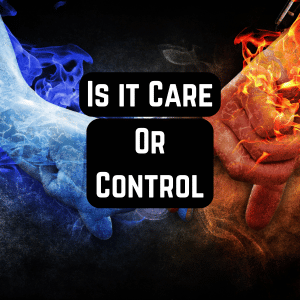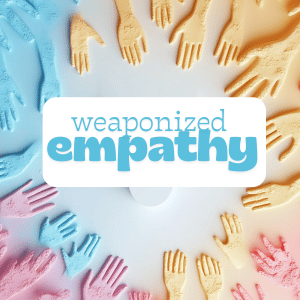The Impact of Relentless Criticism by Narcissistic Individuals: 5 Ways It Takes a Toll and the Importance of Breaking Free
Being constantly criticized by a narcissistic parent or partner can have a profound impact on a person’s life.
Narcissists have a grandiose sense of self-importance, lack empathy, and often seek to exert control over others.
Their criticism is typically aimed at diminishing the self-esteem and confidence of their targets, leaving them feeling devalued and unworthy.
Here are some ways in which this constant criticism can take a toll on a person:
Table of Contents
The Impact of Criticism
Lowered self-esteem: Constant criticism chips away at a person’s self-worth. When someone hears negative comments about themselves repeatedly, they may internalize those messages and develop a negative self-image. Over time, this can lead to feelings of inadequacy and low self-esteem.
Emotional and psychological distress: Enduring constant criticism can cause significant emotional and psychological distress. It can lead to feelings of anxiety, depression, and a sense of constant unease. The negative words and constant scrutiny can create a toxic environment that erodes one’s mental well-being.
Self-doubt and indecisiveness: The relentless criticism from a narcissistic parent or partner can make a person doubt their abilities, judgment, and decision-making skills. This self-doubt can lead to indecisiveness and difficulties in asserting oneself, as the individual becomes overly reliant on others’ opinions.
Fear of failure and perfectionism: The fear of being criticized further may lead to a fear of failure. The person may become perfectionistic, striving for an unattainable standard of perfection to avoid any potential criticism. This can be emotionally exhausting and hinder personal growth and risk-taking.
Strained relationships: Constant criticism from a narcissistic parent or partner can strain relationships in various ways. It may result in a lack of trust, frequent arguments, and emotional distancing. The recipient of the criticism may withdraw or develop defensive behaviors to protect themselves, leading to an unhealthy dynamic.
This Form of Criticism is Different
Criticism with a narcissist can be distinctly different from generalized criticism due to its often obtuse and malicious nature.
Here are some key characteristics that set narcissistic criticism apart:
Personal attacks: Narcissists tend to employ personal attacks rather than providing constructive feedback. Their criticism is often aimed at undermining and belittling their target’s character, appearance, abilities, or achievements. Instead of focusing on specific behaviors or actions, they attack the individual’s core identity.
Lack of empathy: Narcissists lack empathy, making their criticism more callous and hurtful. They disregard the emotional impact their words have on others and may even derive pleasure from causing distress. Their criticism is often void of compassion or consideration for the other person’s feelings.
Manipulation and gaslighting: Narcissists frequently use criticism as a tool for manipulation and control. They may distort reality, deny their own faults, and make the target question their own perception of events. Gaslighting is a common tactic they employ to make the recipient doubt their own sanity and feel even more vulnerable.
Unattainable expectations: Narcissists often set impossibly high standards and demand perfection from others. Their criticism is not aimed at helping the person grow or improve, but rather to reinforce their sense of superiority. They may deliberately move the goalposts, making it impossible for the individual to meet their ever-changing expectations.
Continuous negative focus: Unlike generalized criticism that may be balanced with positive feedback, narcissistic criticism tends to be unrelenting and predominantly negative. Narcissists fixate on flaws, mistakes, and weaknesses, emphasizing them repeatedly. This constant barrage of negativity creates an oppressive environment that can severely impact the person’s self-esteem and overall well-being.
It is essential to recognize the distinctiveness of narcissistic criticism and understand its harmful effects.
Breaking free from the influence of a narcissistic individual becomes crucial for protecting one’s self-esteem, mental health, and overall happiness.
You deserve to be treated with respect and kindness, and breaking away from narcissistic criticism is a significant step towards reclaiming your self-worth.
Distance Yourself
It is crucial to recognize the importance of distancing oneself from these individuals and seeking healthier relationships and environments. Here’s why:
Self-preservation: By removing oneself from the constant criticism, a person can focus on their own well-being and begin the healing process. They can start rebuilding their self-esteem and rediscover their self-worth, away from the toxic influences.
Personal growth: Leaving a narcissistic environment allows space for personal growth and development. It opens up opportunities for self-discovery, building healthier coping mechanisms, and exploring one’s true potential.
Healthy relationships: Removing oneself from toxic relationships paves the way for healthier connections. By surrounding oneself with supportive, loving individuals, it becomes easier to cultivate positive self-esteem and engage in mutually beneficial relationships.
Emotional healing: Distance from constant criticism provides the chance to heal emotionally. Therapy, support groups, and self-care practices can help individuals process their experiences, work through any trauma, and develop healthier emotional patterns.
Establishing boundaries: Getting away from narcissistic individuals empowers a person to establish and enforce boundaries. This is essential for protecting one’s mental and emotional well-being and preventing further harm.
Remember, it can be challenging to break free from the influence of a narcissistic parent or partner, but it can be done…it may take time to adjust to your new you after you have gone through a healing journey.
Have you heard criticism? Can you distinguish criticism from a narcissist and see how it’s different than “normal’ criticism? What steps have you taken to remove this from your life or what challenges are you facing? Drop a comment below…






